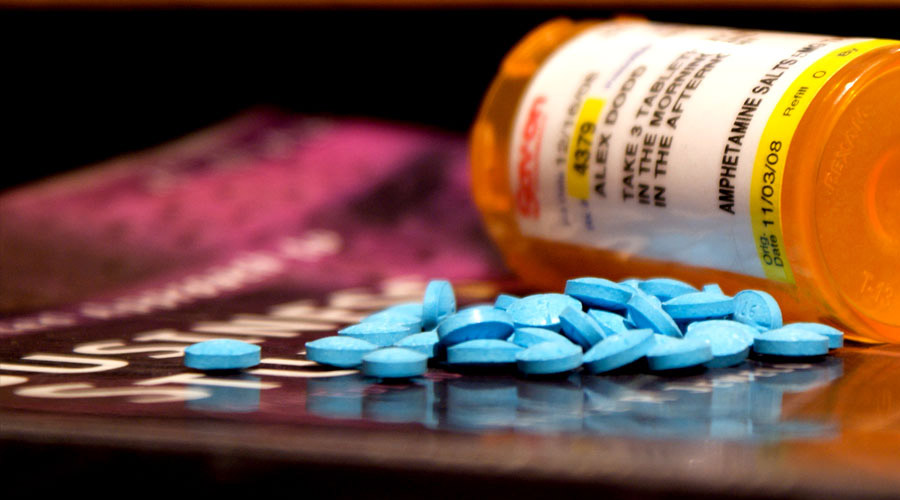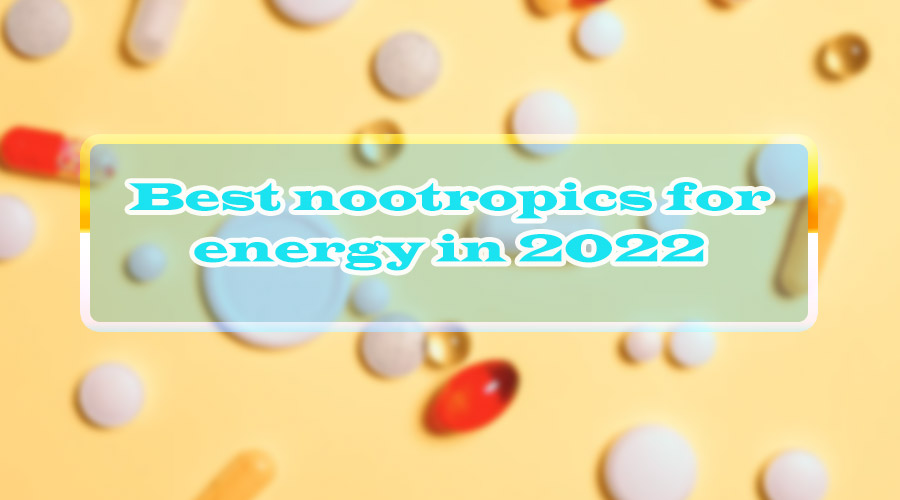A “smart drug” is a term used to refer to a class of drugs that purportedly improve cognitive function. Although there is little evidence that smart drugs actually improve brain function, they are still in use and have potential benefits for people who take them. Smart drugs may be beneficial for people who want to improve their memory, focus, or creativity; however, there is no evidence that they are harmful. Continue reading the article to learn more including the different available smart drugs.
Table of Contents
What are smart drugs?

The term “smart drugs” is bandied about quite a bit in the popular press, but what does it actually mean? The term is generally used to refer to prescription medications that are used for cognitive enhancement, particularly in people with neuropsychiatric disorders such as ADHD and Alzheimer’s disease.
However, there is a great deal of controversy surrounding the use of these drugs, with some people arguing that they are overprescribed and that their benefits are overstated. A 2005 study reported that, at some universities in the United States, as many as 7 percent of respondents had used smart drugs at least once in their lifetime and 2.1 percent had used smart drugs in the past month.
Do smart drugs work?

There is a large and growing market for so-called “smart drugs” or cognitive enhancers, which are purported to make people more intelligent and productive. However, the scientific evidence for these substances is mixed at best. Some studies suggest that they can improve mental function in healthy people, while others find that they don’t work any better than placebos.
In addition, there are concerns about the safety of these drugs, especially in long-term use. At this point, smart drugs remain largely a niche product used by those who are extremely sensitive to the side effects of standard anti- cognition drugs. More research is needed to get a concise evidence-based conclusion that these drugs do improve mental performance.
Prescription smart drugs

One type of smart drug is prescription smart drugs, which are used to treat attention-deficit hyperactivity disorder (ADHD). These medications work by increasing levels of dopamine and norepinephrine in the brain, which enhances focus and concentration. Some prescription smart drugs include Modafinil, Methylphenidate, Adderall, and Memantine.
Modafinil
Modafinil is a prescription drug used to treat narcolepsy, sleep apnea, and shift work sleep disorder. It is also prescribed off-label for other conditions such as ADHD, depression, obstructive sleep apnea, and chronic fatigue syndrome. Common side effects of modafinil include headache, nausea, and anxiety. More serious side effects can include allergic reactions, chest pain, and suicidal thoughts.
The recommended dosage for modafinil varies depending on the person’s age and weight. For adults, the typical dosage is 200 mg per day, taken in the morning. Modafinil can be habit-forming, so it is important not to exceed the recommended dosage.
Methylphenidate

Methylphenidate is a prescription medication that is used to treat attention-deficit hyperactivity disorder (ADHD) and narcolepsy. It is a central nervous system stimulant that works by increasing levels of dopamine and norepinephrine in the brain. Methylphenidate is available in tablet, capsule, and liquid form, and comes in both immediate-release and extended-release formulations. The recommended dosage for methylphenidate depends on the person’s age and weight, as well as the severity of symptoms.
Adderall
Adderall is a prescription drug used to treat attention-deficit hyperactivity disorder (ADHD) and narcolepsy. It is a stimulant that helps increase focus and concentration, and reduces impulsiveness and hyperactivity. Adderall is a controlled substance, meaning it has the potential for abuse and can only be obtained with a prescription from a doctor.
Some people seem to think that you can just take as much of the drug as you want without any consequences. Others believe that there is a specific, magic dosage that will cure their ADD or ADHD. The truth is that there is no one-size-fits-all answer to this question. The right dosage for you may be different than the right dosage for someone else. That being said, there are some general guidelines to help you find the right dose for you.
Memantine
Memantine is a drug that is used to treat Alzheimer’s disease. It works by blocking certain receptors in the brain that are involved in the development of Alzheimer’s. Memantine is the only drug that has been approved by the FDA for the treatment of moderate to severe Alzheimer’s disease.
The recommended dosage for memantine may vary depending on a person’s age and health condition. In general, the starting dose is 5 mg per day, which can be increased gradually to 10 mg per day.
Over-the-counter nootropics
Nootropics are drugs, supplements, or other substances that improve cognitive function. They are becoming more and more popular as people search for ways to improve their mental performance. Some nootropics are available over the counter without a prescription and the most common over-the-counter nootropics are omega-3 fatty acids, racetams, caffeine, panax ginseng, creatine, L-theanine, rhodiola, and ginkgo biloba.
Omega-3 fatty acids
Omega-3 fatty acids are a type of polyunsaturated fatty acid. There are three main types of omega-3 fatty acids: eicosapentaenoic acid (EPA), docosahexaenoic acid (DHA), and alpha-linolenic acid (ALA). EPA and DHA are the two types that are found in fish and other seafood. ALA is the type that is found in plants. Omega-3 fatty acids play an important role in human health.
Racetams

Racetams are a type of cognitive enhancer that are said to improve memory, focus, and motivation. There are a few different types of racetams, but the most popular one is piracetam. Piracetam has been studied extensively and has been found to be safe and effective. Some people take piracetam to boost their mental performance while others take it to help with conditions like Alzheimer’s disease or dementia. However, it also have health risks if you overdose on the supplement.
Caffeine
Caffeine is a stimulant found in coffee, tea, cola drinks, and chocolate. It is the most widely consumed drug in the world. Most people use caffeine to increase alertness and energy. Caffeine stimulates the central nervous system and makes the heart beat faster. It also blocks adenosine, a naturally occurring substance that promotes sleepiness.
Panax ginseng
Panax ginseng, also called Asian or Korean ginseng, has been used as a traditional medicine in Asia for thousands of years. It is one of the most popular herbs in the world and is used to improve overall health, energy, and libido. Panax ginseng is believed to help the body adapt to stress and has been shown to improve mental performance, memory, and reaction time.
It is also thought to boost the immune system and protect against infection. Some people take panax ginseng supplements to treat conditions like diabetes, high blood pressure, and heart disease.
Creatine
Creatine is a naturally occurring nitrogenous organic acid that is produced in the body from L-arginine, glycine and L-methionine. It helps supply energy to muscles and is found in meat and fish. Creatine supplements are popular with athletes because they can improve physical performance, especially during high-intensity activities.
L-theanine
L-theanine is an amino acid that is typically found in green tea. It has been shown to promote relaxation and reduce anxiety. L-theanine seems to work by increasing levels of GABA, dopamine, and glycine in the brain. These neurotransmitters are all known to have relaxing effects. L-theanine may also increase alpha brain wave activity, which is associated with a state of relaxation.
Rhodiola
Rhodiola rosea, often called golden root, rose root, or Aaron’s rod, is a perennial flowering plant in the family Crassulaceae. It grows wild in cold regions of the world, including much of the Arctic and alpine tundra. Rhodiola rosea has been used for centuries as a folk medicine remedy for physical and psychological stress. Modern research suggests that Rhodiola rosea may improve mental performance and protect the brain from damage caused by stress.
Ginkgo biloba
Ginkgo biloba is an herbal supplement that has been used for centuries in traditional Chinese medicine. It is thought to improve blood circulation and help protect the brain from age-related damage.
Preliminary research suggests that ginkgo may be effective for treating a variety of conditions, including dementia, Alzheimer’s disease, and asthma. However, more studies are needed to confirm these benefits.
Most promising options
As the world progresses, more and more people are looking for ways to enhance their productivity. One way of doing this is through the use of smart drugs. These are substances that are said to help improve cognitive function, memory, focus and motivation. While there are many different types of smart drugs available, not all of them are equally effective. In this article, we will take a look at some of the most promising options currently on the market.
One of the most popular options is caffeine. This stimulant is found in coffee, tea and many other beverages. It works by blocking adenosine receptors in the brain, which helps to increase alertness and energy levels. Studies have shown that caffeine can improve cognitive function and memory recall in both healthy individuals and those with Alzheimer’s disease.
Another popular option is nicotine. This substance is found in cigarettes and other tobacco products. It works by blocking a receptor in the brain that causes feelings of pleasure. This slows down activity and increases the release of dopamine, which helps to increase alertness and overall mood. Some of these options are more effective than others.
Common side effects of smart drugs
As the use of smart drugs becomes more popular, it’s important to be aware of the common side effects. Many smart drugs have been shown to cause side effects such as headache, nausea, and insomnia. In some cases, more serious side effects can occur, such as hallucinations and seizures. It’s important to talk to a doctor before taking any smart drug, and to be aware of the risks associated with each one.
Finding
In conclusion, smart drugs are a class of substances that are designed to improve cognitive function. They include prescription medications like modafinil and armodafinil, as well as over-the-counter supplements like caffeine and nicotine. While these substances can offer some benefits, they also come with risks. It is important to speak with a healthcare provider before taking any smart drugs, especially if you have any preexisting health conditions.
Frequently asked questions
What are smart drugs used for?
Smart drugs, or cognitive enhancers, are substances that are said to improve cognitive function, including memory, creativity, and focus. They are used by students, professionals, and others who want to improve their productivity and performance. While the effects of smart drugs vary from person to person, they are generally said to improve mental clarity and focus. Some people also use them to treat conditions such as ADHD and narcolepsy.
What are smart drugs called?
Smart drugs are a type of pharmaceutical drug that is used to improve cognitive function, memory, creativity and motivation in healthy individuals. The term “smart drug” is not officially recognized by the FDA or any other regulatory agency, and there is no single definition of what constitutes a smart drug.
However, most experts agree that these drugs must meet two criteria: they must enhance cognitive function and/or memory, and they must be safe and effective for healthy individuals. Some of the most popular smart drugs include Adderall, Ritalin and Modafinil.
Do any nootropics actually work?
Nootropics are drugs, supplements, or functional foods that purportedly improve cognitive function. Many people take nootropics to try to improve their memory, creativity, and motivation. But do any of these so-called smart drugs actually work?
At this point, there is no compelling evidence that nootropics work. The best evidence we have from a double-blind, randomized controlled trial suggests that they don’t improve cognitive function. In fact, some studies suggest that certain nootropics may actually hurt cognitive performance.
What are the benefits of nootropics?
Nootropics are a relatively new category of supplements that are designed to improve cognitive function. These supplements have been around for only a few decades, but they have already become quite popular. There are many different nootropics available, and each one has its own unique set of benefits.
Some of the most common benefits include increased focus, improved memory, and enhanced creativity. Nootropics can also help people who suffer from anxiety or depression. In addition, they can improve mental clarity and reduce stress levels.
Why do students use smart drugs?
There is a growing trend of students using smart drugs to enhance their academic performance. While the long-term effects of these drugs are unknown, there are some potential risks associated with their use. Some students believe that the benefits of using these drugs outweigh the risks, while others are concerned about the potential consequences.


